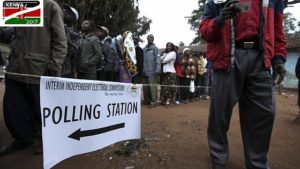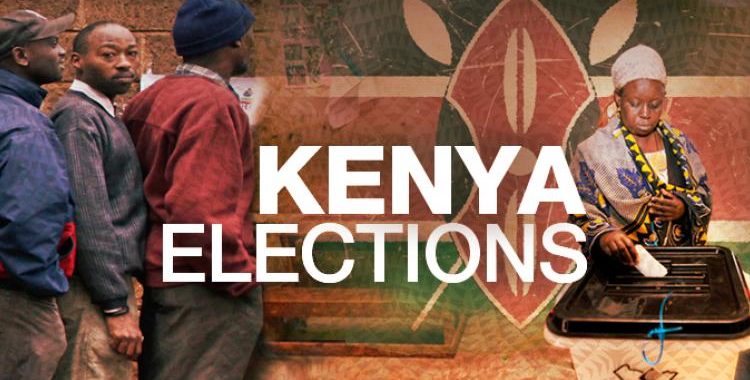Elections: Of Party Primaries and Nominations
INTRODUCTION

It is currently an election year in the Republic of Kenya. With each year of elections, there are manifold uncertainties on the law and procedure governing elections. This is usually more so for you who may either be contesting for a political seat, or supporting those who are.
The purpose of this series of articles is to elaborate in the simplest terms possible, the law relating to the various stages of elections in Kenya. This is to help you the reader to be familiar with the various legal themes around elections so that you can play a proper civic duty.
ELECTIONS AS A SYSTEMIC PROCESS AND NOT AN EVENT

Many people tend to take elections as just a one day event as opposed to an entire process. This is a fundamental error. An election is a process and a journey that begins at the party primaries and concludes at the final announcement of the elected representative.
Whether as a political aspirant, candidate or voter, you need to pay close attention to the events that happen before the actual voting day, as those said events can have an impact in determining whether or not an election was free and fair. Most aspirants and candidates only begin the process of evidence collection on the voting day as opposed to monitoring the process from the begining.
The Supreme Court of Kenya in In the Matter of the Principle of Gender Representation in the National Assembly and the Senate (Supreme Court Advisory Opinion Number 2 of 2012) stated that elections must be approached wholistically as an entire process. Thus the process at the primaries is as important as the actual voting and tallying of results.
LEGAL REQUIREMENTS FOR PRIMARIES ( NOMINATION OF CANDIDATES)
A party primary is defined by Section 2 of the Political Parties Act as a process by which a political party selects its candidates for a forthcoming general election or by-election. Once primaries are concluded, each party then submits a list of nominated persons who will then proceed to contest in the main election.
Any person who seeks nomination, would submit all the person’s nomination papers and relevant qualifications to the Returning Officer, who will in turn issue a nomination certificate upon being satisfied of the Applicant’s suitablilty to contest the elections. This is a requirement under Regulation 51 of the Elections General Regulations (2012)
SUBMISSION OF NOMINATION RULES AND PROCEDURES
Each political party is required by law to submit its nomination rules and procedures to the Independent Electoral and Boundaries Commission (IEBC) at least 6 months before the nomination of candidates. These rules and regulations must be sufficiently published and publicized to all the members of the political party. The rules and procedures must also take care of the needs of persons who live with disabilities.
The nomination rules and procedures must have the following key content:
- They must provide for the procedure to be adopted in preparation of party lists for persons who will stand in elections for every electoral area.
- They must provide for an internal dispute resolution system that will be the first point of call for resolution of any dispute regarding the nomination process.
RESOLUTION OF DISPUTES REGARDING PRIMARIES AND NOMINATION

Any dispute regarding party primaries and nomination must go through the following processes in this order:
- The Party’s Internal Dispute Resolution Mechanism (IDRM)
- The Political Parties Dispute Tribunal (PPDT)
- The High Court
To this end, regardless of the urgency and nature of the grievance, everyone who needs redress must first start at the Party’s internal process before approaching the PPDT and finally the High Court.
The tribunal and the court, once presented with a dispute, will undertake an exercise of determination of whether or not the nominated candidate secured enough votes to be nominated. This is often a statistical exercise. An aggrieved person will thus need to produce enough evidence showing that the nominated person did not actually gain th emajority of vote to secure a nomination.
At the High Court, an aggrieved person will need to demonstrate that he/she challenged the decision of the IEBC and also sought the review of the decision of the IEBC.
CONCLUSION

As stated earlier in this article, elections should be considered as an entire process and not just the actual voting and release of results. Success or failure of any election petition in the court, turns on evidence collected before voting, during voting and after voting. At Begi’s Law, we are on standby to advice anyone seeking legal redress with regards to the entire process in an election.


Pingback : Elections: Of Party Primaries and Nominations - Advocates.ke Insights
Keep Up The Good Work
This Article is wrong to some extent. The Political Parties Amendment Act. No. 21/2016 introduced Section 40(1)(fa) fully aware of section 40(a) and (b). Issues arising out of party primaries need not necessarily go through Internal Dispute Resolution Mechanisms meaning a Complainant can choose to skip and go to the Tribunal direct. Kindly update.
Hello Collins, Thank you for taking your time to read through our article and for the correction.
We will go through the article again and amend where necessary.
Pingback : Elections: Of Party Primaries and Nominations – Legal Insights and Trends In Kenya